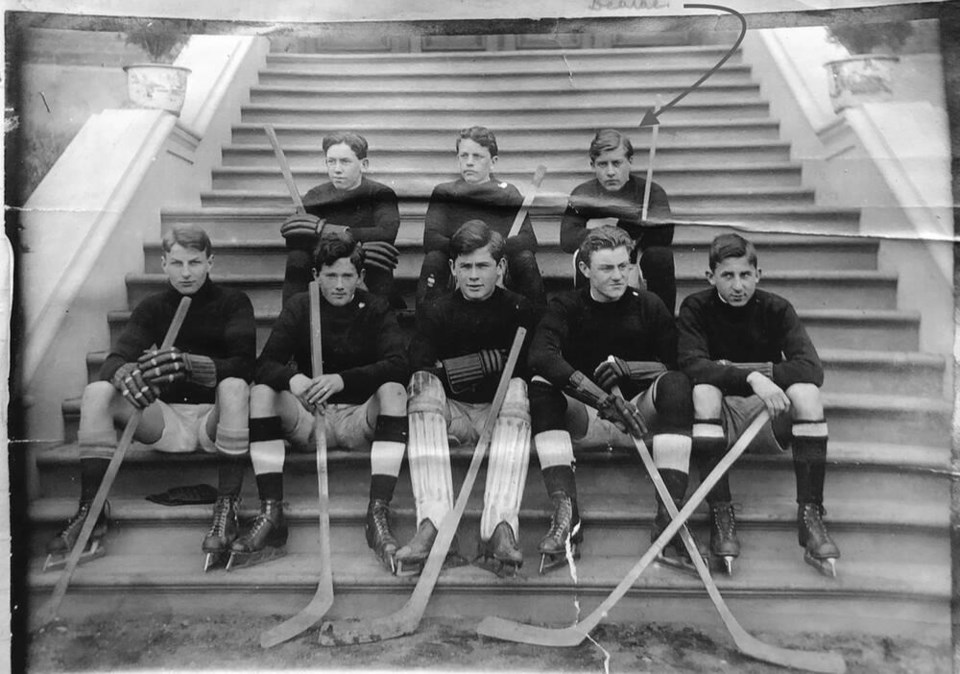A commentary by an amateur sleuth who is writing about the world of diary keepers.
A column a few weeks ago by Jack Knox provided the “sad end to book sale mystery” about the lost diary of Charles Deane Douglass. The young soldier died at 19 but was “kept alive to his family” through his diary.
There are relevant questions about the public role of diaries as informal social history, and the fate of some diaries. I was happy to hear that this “found treasure” was returned to his family.
Not all do.
Until August 2022, when in an out-of-the-way town in Tuscany, my husband and I discovered the Piccolo Museo del Diario, I’d never thought about the fate of ordinary people’s diaries or wondered who reads the diaries of others.
The Little Diary Museum we learned is part of Italy’s National Diary Archive and home to over 10,000 fragments, memoirs, photos and diaries. The term ‘diary’ is generously extended to a bedsheet and other ephemera.
There is the ‘Bed Sheet Diary’ of peasant women Clelia Marchi, who lacking paper, poured out her grief following the death of her husband of more than 60 years. In tiny neat handwriting, she filled a linen sheet, once part of her trousseau, from top to bottom.
Then there are notes that Orlando Posti rolled into his shirt collars to be smuggled out of prison by his mother who collected the laundry. Posti died at just 18 in an SS prison in Rome.
His words shed light on an infamous act during the Second World War but surprisingly, didn’t talk about the horrors of the war or living in a closet-like cell with four other men. Instead, he talked of his desire to become a doctor, about his girlfriend and his love of food.
Looking back on that August day, when I naively asked who reads the diary of others, it was more an incredulous question than informed.
I’ve read or know of more famous diaries such as Anne Frank’s, of Pliny the Younger, Lewis and Clark’s, and other well-known figures.
I’d even confess to reading some gossipy accounts of the rich and famous under the guise of memoir, another form of life or auto writing.
Since visiting Italy’s Diary Town, I continue to ask who reads the diaries of others, but with curiosity and seeking more information. That day was the start down an internet sinkhole as I wanted to learn more about public and private diary keepers.
Turns out there are countless people and institutions engaged in this fascinating pursuit. Archives, universities, researchers, historical societies, and others are involved in preserving these valuable artifacts.
The United Kingdom’s Great Diary Project is one of the best-known collections and includes the Mass Observation project from the Second World War.
Then, there are individuals like Sally Ivy who has read each of the 10,000 diaries she has acquired over the past 36 years. A Ted Talk Influencer and along with friend and journalist Rob Elder, Sally is attempting to create a National Diary Archive in the United States. She has been called, “the keeper of secrets,” and written about in The Guardian and The Atlantic.
The recent publication of Nina Siegal’s historical non-fiction book, The Dairy Keepers, provides accounts of wartime Holland through the diaries of nine people. When the diarist began writing in 1941, the fate of the war was uncertain, so the diaries are time capsule of “writing history forward.”
Siegal’s storytelling technique echoes earlier books by Simon Garfield. His works, Our Hidden Lives and We are at War, use diaries collected in the Mass Observation project to tell the story of ordinary people and a country at war.
Michael Foucault argues that stories are “subjugated knowledges” and ones that “contain most of the historical knowledge of struggles within a community.”
My fascination and questions grow with each new discovery. What issues arise from the public consumption of diaries not intended for others, and how are those risks weighed against the value of preserving important slices of history?
What will happen to your diary?
>>> To comment on this article, write a letter to the editor: [email protected]


